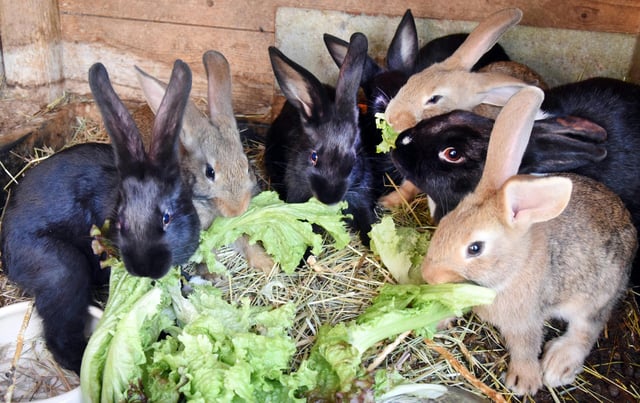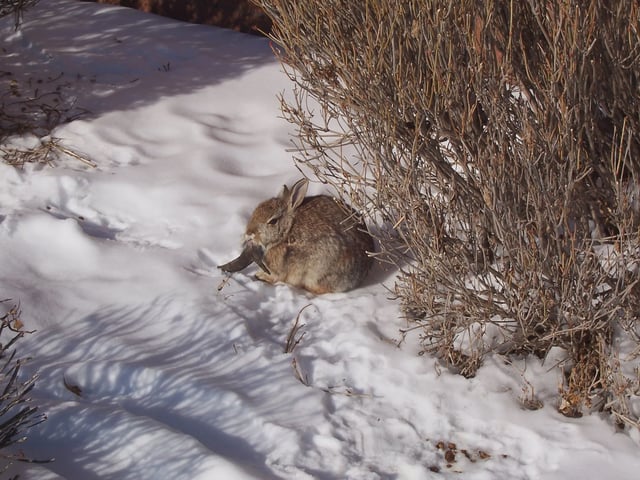Overview
- Colorado Parks and Wildlife confirmed that black, horn-like growths on Fort Collins cottontail rabbits stem from Shope papillomavirus and has received more than a dozen reports since Aug. 8, though some likely involve the same animals.
- Shope papillomavirus spreads between rabbits via biting insects such as mosquitoes, ticks and fleas and often produces wart-like protrusions that can regress naturally.
- The virus is specific to rabbits, cannot infect humans or most pets and typically remains benign in wild cottontails, but domestic rabbits face higher risk of severe or cancerous lesions.
- Officials advise residents to leave wild rabbits alone, avoid touching or feeding them and to house pet rabbits indoors if wild infected rabbits are nearby.
- Social-media reports of similar horned rabbits in Minnesota and Nebraska have emerged but remain unverified and are under review by wildlife authorities.



